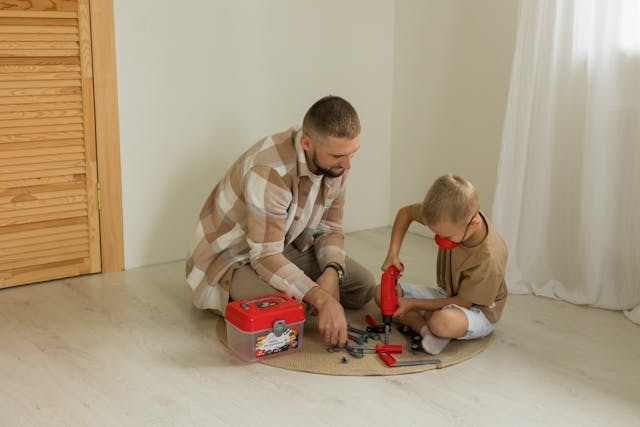10 Psychology Signs to Spot Haters

We all encounter people who seem friendly on the surface, but their words or actions make us feel uneasy. Sometimes, these people don’t outright express their dislike for us, but their behaviors speak volumes. Spotting “haters”—those who harbor negative feelings or jealousy—can be difficult, especially when they mask their true emotions behind a smile. However, there are psychological signs and subtle cues that reveal their true intentions.
Understanding these signs not only helps you protect your mental health but also allows you to navigate relationships more effectively. Whether in your social circle, workplace, or even family, spotting a hater early can help you set healthy boundaries and avoid unnecessary drama.
Here are 10 psychology signs to spot haters, based on common behavioral patterns, body language, and subtle psychological cues.
1. They Constantly Criticize Without Offering Constructive Feedback
Haters often disguise their negativity with criticism, but they rarely offer constructive suggestions or solutions. The goal isn’t to help you improve but to bring you down or undermine your confidence. Criticism from a hater may come off as subtle or passive-aggressive, often wrapped in a “I’m just being honest” tone.
Psychological Insight:
This behavior can be tied to projection, where the hater feels insecure or inferior and projects those feelings onto others. Rather than building you up, they tear you down to feel better about themselves.
How to Spot It:
- Unsolicited negative comments: They point out flaws or mistakes, even in areas that don’t require feedback.
- Lack of solutions: They criticize but never offer any suggestions to improve.
If someone consistently criticizes you without any desire to help you grow, it could be a sign they are harboring negative feelings.
Read More: 10 Cheat Codes I Wish I Knew at 30
2. They Display Envy or Jealousy When You Succeed

Jealousy is a classic indicator of someone harboring ill feelings toward you. Haters often struggle to celebrate your success and may respond with indifference, passive-aggressive comments, or even try to diminish your achievements. This jealousy can manifest as subtle competition or backhanded compliments.
Psychological Insight:
Envy often arises from a lack of self-esteem. When someone feels inadequate or threatened by your success, they may lash out with resentment instead of showing support.
How to Spot It:
- Lack of support when you share good news.
- Dismissal or downplaying your success, even in casual conversation.
If someone can’t seem to celebrate your achievements or constantly compares themselves to you, they may be harboring resentment or jealousy.
3. They Use Sarcasm to Disguise Negative Intentions

Sarcasm can be funny, but when used consistently in interactions, it can also be a mask for underlying hostility. Haters often use sarcasm as a way to veil their true feelings without directly confronting you. It’s an easy way for them to undermine you without taking responsibility for their words.
Psychological Insight:
Sarcastic remarks often stem from feelings of frustration, inadequacy, or insecurity. The hater wants to make you feel small without taking the blame for outright negativity.
How to Spot It:
- Frequent sarcastic comments that leave you feeling confused or hurt.
- Backhanded compliments wrapped in sarcasm, like “You’re looking so great today… for once.”
If their “jokes” consistently leave you feeling awkward, self-conscious, or defensive, it could be a sign of hidden animosity.
Don’t Miss: 10 Commandments of Marriage According to the Happiest Couples Alive
4. They Avoid Eye Contact or Display Closed Body Language
Body language is a powerful indicator of how someone truly feels, even when they’re trying to hide it. Haters may avoid making eye contact or adopt a closed posture when around you. This non-verbal behavior signals discomfort, avoidance, or even disdain.
Psychological Insight:
Lack of eye contact or closed body language (crossed arms, leaning away from you) reflects psychological distance. They’re subconsciously signaling that they want to keep a wall between you, indicating a lack of emotional connection or a desire to distance themselves.
How to Spot It:
- Avoiding eye contact when speaking to you.
- Crossed arms, turned body, or other signs of physical distancing during conversations.
If someone consistently avoids eye contact or displays closed-off body language, it may be an unconscious attempt to distance themselves emotionally from you.
Don’t Miss: Cute Couples Goals You Should Have in 2025
5. They Gossip or Talk Behind Your Back

One of the most obvious signs of a hater is when they gossip about you or talk behind your back. They may make negative remarks about your appearance, personality, or decisions when you’re not around, especially to mutual acquaintances. Gossiping is a way for them to manipulate the opinions of others and create drama.
Psychological Insight:
Gossiping serves as a way for people to bond over shared negativity. A hater may also use gossip to boost their own social standing by diminishing your reputation.
How to Spot It:
- Mutual friends or colleagues mentioning things others have said about you.
- Negative talk or rumors about you spreading among your social circle.
If someone consistently talks about you behind your back, it’s a clear sign that they may not have your best interests at heart.
6. They Give You the Cold Shoulder or Exclude You
A hater often resorts to social exclusion or the silent treatment to manipulate you. Instead of addressing their issues directly, they make you feel invisible or unimportant. This tactic is designed to make you feel left out or rejected, which can lead to feelings of isolation.
Psychological Insight:
Exclusion is a subtle yet effective form of control, often rooted in a desire to diminish your self-worth. The hater wants to see you feel excluded or unsupported, making them feel more powerful.
How to Spot It:
- Being left out of social events or conversations that others are included in.
- Cold behavior—being ignored, avoided, or treated as though you’re invisible.
If you feel like you’re being purposefully excluded or ignored by someone, they may be trying to exert power over you or undermine your confidence.
7. They Project Their Own Flaws or Issues onto You
Haters often use projection as a defense mechanism. Instead of acknowledging their own flaws or insecurities, they project them onto others. For example, they might accuse you of being lazy, selfish, or dishonest—traits they actually feel about themselves but are unwilling to confront.
Psychological Insight:
Projection is a common defense mechanism in psychology where individuals attribute their own unacceptable feelings, motives, or qualities to someone else. In relationships, this can manifest as unfair criticism or blame.
How to Spot It:
- Accusations or insults that don’t align with your behavior.
- Unwarranted criticism based on their own insecurities or experiences.
If someone frequently projects their issues onto you, it’s a sign they might be trying to deflect attention away from their own problems.
You May Like: How To Read People Without Them Knowing
8. They Try to Undermine Your Confidence or Self-Worth
A hater’s goal is often to make you feel inferior or less capable. They may use tactics like subtle insults, negative comparisons, or dismissing your achievements to bring down your self-esteem.
Psychological Insight:
This behavior often stems from their own feelings of inadequacy. If they can make you feel bad about yourself, it makes them feel better by comparison. This tactic is meant to manipulate your emotional state and create doubt.
How to Spot It:
- Dismissing your achievements or minimizing your success.
- Negative comments about your skills or abilities, especially when you’re feeling proud of something you’ve accomplished.
If someone continuously tries to undermine your self-worth or put you down, it’s a psychological tactic to make themselves feel superior.
9. They Show Passive-Aggressive Behavior

Instead of being direct about their feelings, haters may resort to passive-aggressive behavior to express their dissatisfaction. This includes sarcasm, backhanded compliments, or sulking when they don’t get their way. Their true feelings are hidden behind a façade of politeness, which makes it difficult to confront them directly.
Psychological Insight:
Passive-aggression is a common way for individuals to express anger or frustration without taking responsibility for their feelings. It’s an indirect way to get back at someone or to express hostility.
How to Spot It:
- Sarcastic remarks that sting, disguised as jokes.
- Subtle sabotage or undermining of your plans.
- Delayed responses or sulking behavior when they don’t get their way.
If you notice passive-aggressive tendencies in someone’s behavior, they may be harboring negative feelings without openly confronting you.
10. They React with Contempt or Disdain
Contempt is the most dangerous emotion in a relationship, and unfortunately, it’s often present in toxic friendships or relationships with haters. Contempt involves feelings of superiority, often expressed through mocking, eye-rolling, or condescending remarks.
Psychological Insight:
Contempt is a predictor of relationship breakdown and has been shown to be one of the leading causes of conflict escalation in relationships. It’s a sign that someone sees themselves as better than you and is using that sense of superiority to belittle you.
How to Spot It:
- Rolling eyes or mocking when you speak.
- Condescending tone or language, often belittling your ideas or opinions.
If someone consistently shows contempt toward you, it’s a powerful psychological signal that they hold negative feelings and think poorly of you.
Final Thoughts
Spotting a hater can be challenging, especially when they hide behind masks of politeness or sarcasm. However, by understanding the psychological behaviors outlined above, you can begin to identify when someone’s negative feelings are affecting your emotional well-being.
The key to handling haters is to set boundaries, protect your energy, and never let their negative behaviors dictate your self-worth. Surround yourself with people who support and uplift you, and don’t let the opinions of others derail your confidence and happiness.
FAQs: Psychology Signs to Spot Haters
- How can I deal with a hater in a professional setting?
Maintain professionalism and composure. Avoid engaging in negativity and focus on your work. Setting clear boundaries and not allowing their behavior to affect your productivity is key.
- Should I confront a hater directly?
Confrontation should be approached carefully. Assertive communication is important, but make sure you’re prepared for potential escalation. Sometimes, it’s better to remove yourself from the situation and focus on your own well-being.
- How can I protect myself emotionally from a hater?
Build a strong sense of self-worth, practice mindfulness, and avoid internalizing their negativity. Keep a supportive network of friends and colleagues who encourage you.
- How do I know if I’m the one being negative?
Reflect on your actions and words. Are you offering support, or are you undermining others? Becoming self-aware of your own behavior helps in creating healthier relationships.
- How can I avoid becoming a hater myself?
Focus on building empathy, gratitude, and positive self-esteem. Work on addressing personal insecurities and practice kindness in your relationships.






